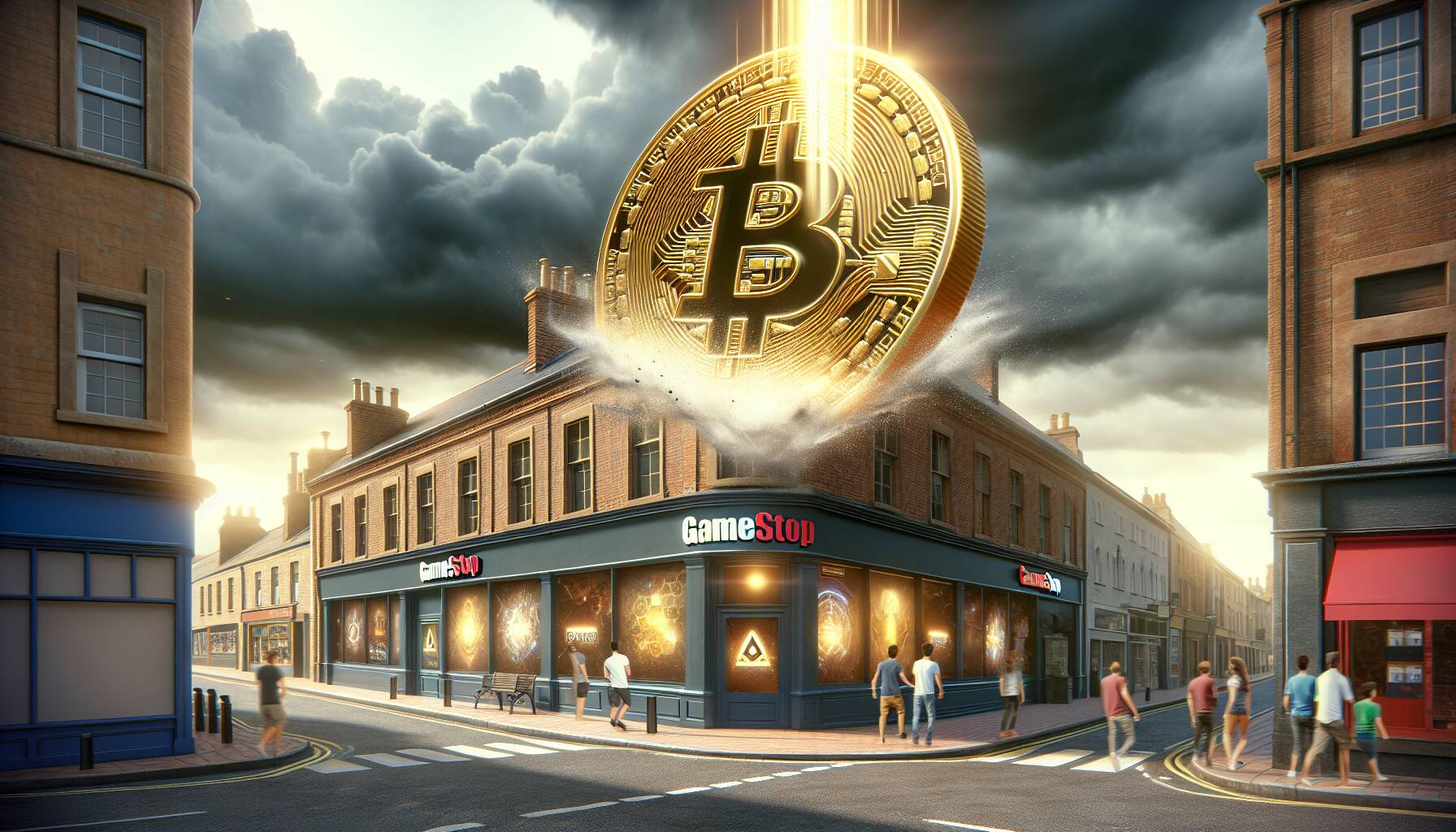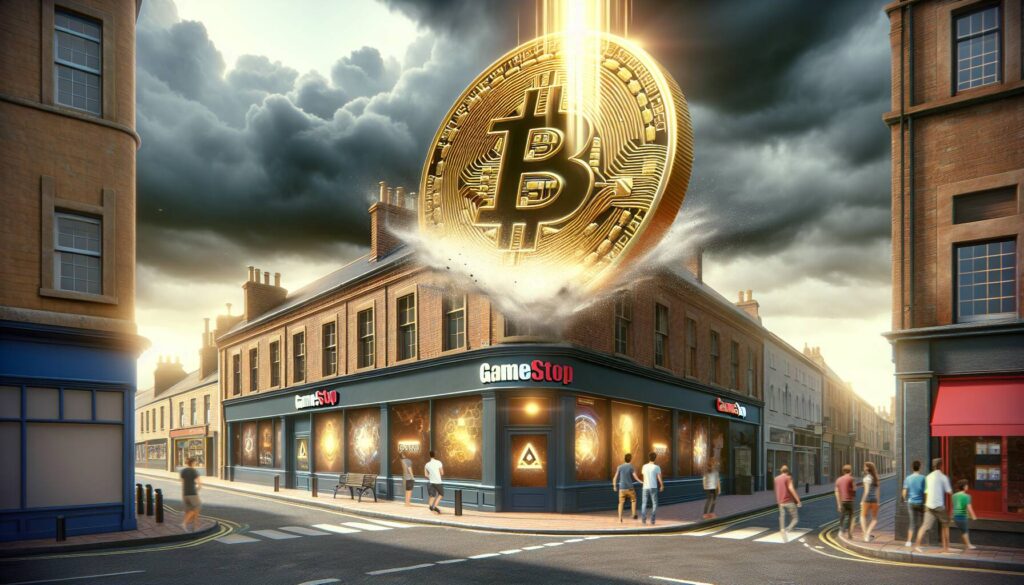GameStop (GME), the well-known video game retailer that has become a symbol of retail trading fervor, has made a notable move by announcing a $1.75 billion convertible senior note offering. This initiative aims to bolster its investments, with a clear focus on incorporating bitcoin as a treasury reserve asset, a strategy outlined in the company’s earlier communications.
According to a press release, the funds from this latest offering will contribute to investments that align with GameStop’s investment policy. This offering is specifically directed at qualified institutional buyers and includes an option for investors to increase their stakes with an additional $250 million in notes within a two-week window of issuance. Interestingly, these notes do not carry regular interest and are set to mature in June 2032, unless converted or repurchased sooner.
“GameStop’s foray into cryptocurrency follows a previous successful raise of $1.3 billion from a different convertible note offering in March, which allowed them to acquire 4,710 bitcoin, amounting to around $500 million,”
Despite these strategic financial maneuvers, GME shares experienced a noticeable decline, dropping by 10% in after-hours trading. This development comes amid GameStop’s ongoing efforts to navigate the evolving landscape of the gaming and cryptocurrency industries, which have both faced their respective sets of challenges and opportunities.

GameStop’s Convertible Senior Note Offering
Key points from GameStop’s recent announcement:
- Convertible Senior Note Offering: GameStop announced a $1.75 billion convertible senior note offering.
- Investment Purpose: Proceeds will be used for investments consistent with the company’s Investment Policy, including adding bitcoin as a reserve asset.
- Qualified Institutional Buyers: The offering is only open to qualified institutional buyers, limiting participation.
- Additional Notes Option: There is an option to purchase an additional $250 million in notes within two weeks of the initial issuance.
- No Regular Interest: The notes carry no regular interest and mature in June 2032 unless converted or repurchased earlier.
- Previous Fundraising: Following the announcement of the bitcoin treasury strategy, GameStop previously raised $1.3 billion through another offering.
- Bitcoin Acquisition: The company purchased 4,710 bitcoin for approximately $500 million in May as part of its investment strategy.
- Stock Impact: GME shares experienced a 10% decrease in after-hours trading post-announcement.
The shift towards cryptocurrency could impact investor perceptions and future strategies of GameStop, affecting both its market valuation and the broader cryptocurrency landscape.
GameStop’s Bold Move: Navigating the Crypto Waters
In a strategic pivot, GameStop (GME) has rolled out a $1.75 billion convertible senior note offering, aiming to secure its future amidst turbulent market waters. This latest financial maneuver comes hot on the heels of its announced strategy to adopt bitcoin as a treasury reserve asset. What’s particularly intriguing here is how this approach positions GameStop within the broader landscape of traditional retail and disruptive cryptocurrencies.
Competitive Advantages: One of the standout elements of GameStop’s offering is its focus on institutional investors, presenting a solid opportunity for capital influx without the immediate burden of interest payments. This move allows the company to bolster its cash reserves while potentially facilitating its foray into the digital asset space. By acquiring bitcoin, GameStop clearly aligns itself with the growing trend of companies endorsing cryptocurrency as a legitimate financial reserve. This positions GameStop innovatively, appealing to tech-savvy investors who see the value in combining retail and blockchain technologies.
Disadvantages: However, the venture is not without its risks. The decision to delve deeper into cryptocurrency can be particularly volatile, subjecting GameStop to the unpredictable nature of the crypto market, which may alienate conservative investors who prefer stability over speculation. Furthermore, the immediate drop in GME shares by 10% in after-hours trading indicates skepticism among retail investors reacting to the news, hinting at potential backlash from loyal fans who may be more comfortable with traditional gaming and retail strategies.
This situation could benefit institutional investors who are looking to diversify their portfolios with emerging cryptocurrencies, as well as hedge funds that invest in innovative companies. Conversely, long-time GameStop supporters may find this shift problematic, as it diverges from the core business model they expected the company to follow, potentially leading to a sense of betrayal among its retail base.
















